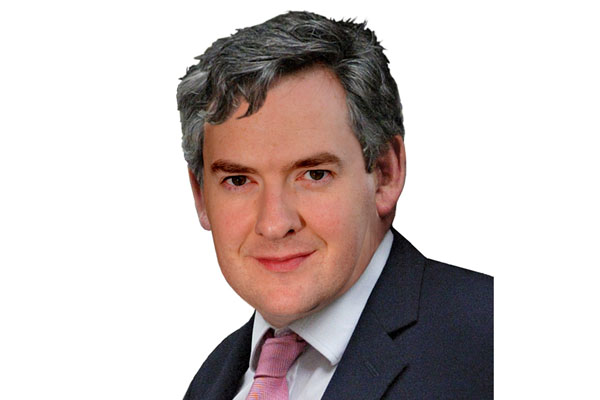The Institute for Fiscal Studies has today published its attempt to predict what the OBR forecasts will show when they’re released as George Osborne sits down after delivering his Autumn Statement next week. They put forward two possible scenarios: a ‘pessimistic’ one where the economy’s recent weakness is largely permanent, and an ‘optimistic’ one where it is largely temporary. In both scenarios, they show Osborne missing his ‘supplementary target’: to have the debt-to-GDP ratio falling by 2015-16. But these forecasts exclude the effect of transferring of the interest on the Bank of England’s Quantitative Easing purchases to the Treasury. As I reported on Friday, that effect might be enough to allow Osborne to meet his debt target even despite the weakness in the economy and the deterioration in the public finances. But the IFS cautions that Osborne would be wrong to claim success if that’s the case:
‘it would be disingenuous for the Chancellor to claim that he was still on course to meet his supplementary target purely as a result of such a change. Any assessment of whether the Chancellor remains on course to meet his supplementary target should use the same measure of debt as was in place at the time he committed himself to this rule; not doing so – and thus being seen to move the goalposts – could risk undermining the credibility of any commitments he makes to fiscal discipline.’
And to underline just how disingenuous it would be, the IFS likens such trickery to the kind used by Gordon Brown during his chancellorship:
‘Similar arguments were made when, soon after the general election of 2005, the then Chancellor Gordon Brown revised his assessment about when the then current economic cycle began (from 1999–2000 to 1997–98), which happened to make his ‘golden rule’ easier to meet just at the moment when data from the ONS first suggested that the rule was on course to be breached.’
The IFS urges Osborne not to follow the example of his predecessor-but-one, but instead to come clean. If, as is very likely, the OBR judges that he would be missing his debt target without the QE transfer, Osborne should either announce more spending cuts and tax rises in order to meet it, or admit defeat and drop the target. The IFS says meeting the target would take an extra £16 billion of savings on its optimistic forecast, and £27 billion on its pessimistic one. But they recommend dropping the target, arguing that:
‘Ensuring debt falls between two fixed dates does not ensure long-run sustainability, since it does not prevent the government from pursuing unsustainable fiscal policies before or after those dates. Furthermore, seeking to remain on course to meet this target could require the government to announce inappropriately contractionary fiscal policies. There will be periods when it would be better to allow debt to rise than to ensure (or try to ensure) that it falls.’
They say Osborne ‘would likely be best advised to abandon the rule and consult on replacing it with something that better ensures long-run sustainability.’ But considering that it was Osborne who introduced the rule in the first place — back in 2010 — it’ll be profoundly embarrassing for him to first admit that he’s breaking it, and then say ‘Well, it was a silly rule anyway. Oh and here’s a new rule. I’ll meet this one, honest.’
But even more worrying for Osborne will be that the IFS’s pessimistic scenario shows him missing his main fiscal rule: to eliminate the current budget’s structural deficit within five years (ie. by 2017-18 in these forecasts). Even the optimistic scenario has him only just managing it, with a surplus of just 0.6 per cent of GDP in 2017-18.
The IFS reckons that the pessimistic scenario would require Osborne to find an extra £23 billion in spending cuts and tax rises, although he would be able to delay them until after the election, just as he did with the extra tightening he announced in last year’s Autumn Statement.
UPDATE: While welcoming the appointment of Mark Carney as Bank of England Governor, Ed Balls put the IFS’s warning to George Osborne and asked him to promise not to include the QE-transfer effect. Osborne didn’t make that promise.







Comments